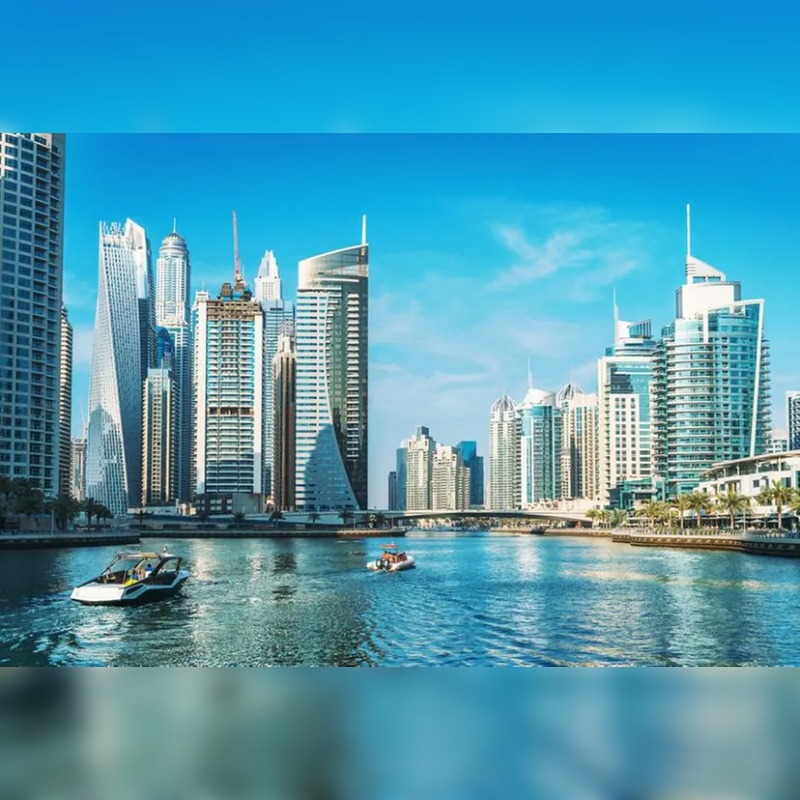
Surge In HNWI Funds After FATF Exit To Drive UAE Realty
The UAE’s removal from the Financial Action Task Force grey list is an important milestone and its overarching impact would soon be felt across all economic sectors, including real estate, say property consultants, and realty experts.
They argue that the long-awaited decision is going to allow for the free flow of capital into the country, especially from high net worth individuals (HNWIs) without excessive checks, removing restrictions and increasing transparency.
In 2024, the real estate sector is already off to a strong start with a 17 per cent year-on-year increase in property sales in January. Realty experts say they have many more reasons to be positive about the coming months.
“HNWIs have already had a huge impact on the domestic real estate market. Just last year, we’ve seen the doubling of property sales in the $10 million+ range, with over $7.6 billion worth of such high-end home transactions in Dubai last year,” said Samer Chehab, founder & CEO, PropertyGuru.ae.
Alois Kugendran, general manager (Real Estate) at Huspy, said the UAE has long been a global investment destination, recognised for its stability and ease of doing business. “However, its presence on the FATF grey list highlighted potential governance concerns around financial crimes like money laundering, which may have undermined the confidence of some HNWIs and businesses.”
Over the longer term, the UAE’s removal from the FATF grey list should have the benefit of attracting more foreign direct investment, supporting economic growth that would undoubtedly be positive for real estate demand from HNWIs. In 2023, the UAE was ranked second in the world for attracting HNWIs. “We expect the migration of such individuals to continue and drive demand for homes here, he said.
“Going forward, we expect increased demand from HNWIs, both due to increased confidence and trust and the likelihood that it will reduce the fees and potential complications associated with transferring money into the UAE,” said Kugendran.
Chehab noted that the UAE’s macroeconomic environment is looking extremely strong with a 5.0 per cent GDP growth forecast for the year with real estate playing a large role in the non-oil contribution to the economy.
He said in the off-plan market, transactions increased by 3.1 per cent year-on-year in the country. “With skyrocketing rental increases, demand for homeownership is expected to grow once again in 2024. Moreover, foreign investor demand remains, particularly due to the strong ROI ranging between 5.0 per cent and 10 per cent.”
“While Dubai will remain the UAE’s primary property market, there is growing demand in Abu Dhabi where off-plan sales grew by 99 per cent in terms of volume and 174 per cent in terms of value. The UAE capital is attracting investor attention especially as new projects and developments emerge, delivering great value for homebuyers,” said Chehab.
“For the real estate sector, 2023 was not just a record year, but we also saw incredible resilience in demand despite rising prices and higher borrowing costs. At Huspy, we saw our single biggest month in mortgages with Dh1 billion processed in November 2023 and our real estate division continued to close big ticket transactions,” added Kugendran.
“This year is already off to a strong start with a 17 per cent y-o-y increase in property sales in January. We don’t expect to see large increases in prices and transactions in 2024, compared to 2023, but there are many reasons to be positive and expect further growth. These include continued population and economic growth and potential interest rate reductions by the US Fed,” said Kugendran.
While the UAE already has some of the lowest interest rates in the world, further interest rate reductions will improve affordability and support demand, particularly from end-users. “This coincides favourably with the recent changes in the Golden Visa rules, which make it easier than ever for home buyers to secure long-term residency,” said Kugendran.
The analysts said the realty sector is having several new projects announced by leading developers like Emaar, Sobha, and Ellington. Developers are not only ensuring sufficient supply but are also offering attractive payment plans starting from as low as 1.0 per cent per month. During Ramadan and the summer, the sector might see the usual seasonal slowdowns, but the outlook remains positive for the rest of the year, they said.
With the UAE’s population set to grow significantly over the next few years, analysts anticipate increased activity in the off-plan market in the 3-5-year period. The stabilisation of interest rates and easier availability of long-term visas will be key drivers of the real estate sector’s growth in 2024.






